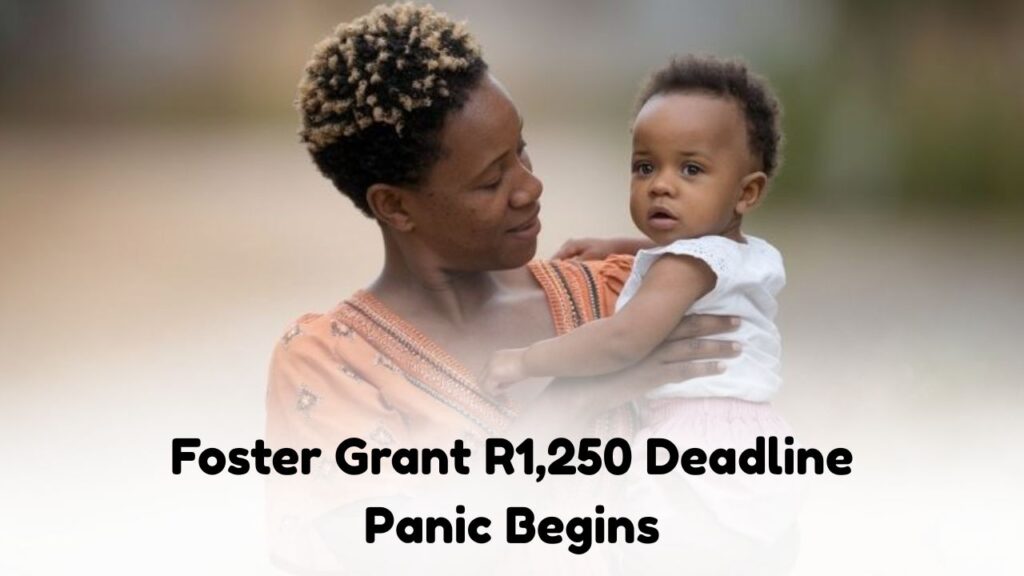Foster Child Grant Application: South African families have a significant opportunity at their fingertips with the R1,250 Foster Child Grant, designed to support those opening their homes to children in need. As the deadline looms, it’s vital that eligible caregivers take action to ensure they receive this crucial financial assistance. The grant aims to provide financial relief to foster parents, enabling them to meet the children’s basic needs, such as food, clothing, and schooling. This initiative is a testament to the government’s commitment to supporting vulnerable children, ensuring that they are raised in a nurturing and loving environment. For those considering applying, understanding the eligibility criteria and application process can mean the difference between securing this essential support and missing out.

Understanding the R1,250 Foster Child Grant Eligibility
Before diving into the application process, it’s essential to comprehend who qualifies for the R1,250 Foster Child Grant. The South African government has set specific criteria to ensure that the grant reaches the families and children who need it most. Primarily, the grant is available to legal foster parents of children under the age of 18. The foster care order must be issued by the court, highlighting the child’s placement in the applicant’s care. Additionally, the foster parent must be a South African citizen, permanent resident, or refugee residing within the country’s borders. Financial means testing is not a requirement for this grant, which sets it apart from other social assistance initiatives. Understanding these guidelines is crucial for potential applicants to determine their eligibility and prepare the necessary documentation.
How to Apply for the Foster Child Grant Before Time Runs Out
With the deadline for the R1,250 Foster Child Grant fast approaching, ensuring a smooth application process is paramount. Applicants must gather essential documents, including the child’s birth certificate, the court order placing the child in foster care, and the foster parent’s identity document. The application process begins at the nearest South African Social Security Agency (SASSA) office, where completed forms must be submitted. While the official deadline for applications has not been explicitly stated, it’s advisable for applicants to act swiftly to avoid any last-minute rushes or unforeseen delays. By staying proactive and informed, prospective foster parents can secure the support needed to provide a stable, loving home for their foster children.
Why the Foster Child Grant is Essential for South Africa
The R1,250 Foster Child Grant plays a crucial role in supporting vulnerable children across South Africa. By providing financial assistance to foster parents, the grant alleviates the economic burden associated with raising a child, which can be particularly challenging for families already struggling to make ends meet. This financial support ensures that foster children have access to basic necessities, contributing to their overall well-being and development. Furthermore, the grant helps foster parents focus on nurturing and providing a stable environment, rather than worrying about the financial implications of caregiving. Such initiatives are vital in promoting social welfare and ensuring that all children, regardless of their circumstances, have the opportunity to thrive and succeed.
Long-term Impact of the R1,250 Foster Child Grant
The long-term benefits of the R1,250 Foster Child Grant extend beyond immediate financial relief for foster parents. By supporting these families, the grant contributes to breaking the cycle of poverty and instability that many foster children face. With the aid of this grant, foster parents can prioritize education and healthcare, ensuring that their foster children have access to the resources necessary for a bright future. This investment in the well-being of foster children ultimately benefits the broader South African society by fostering a generation of well-adjusted and educated citizens. As such, the Foster Child Grant is not merely a short-term solution but a strategic investment in the nation’s future, aiming to create a more equitable and prosperous society for all.




